How do I prepare for parent-teacher conferences?
Parent-teacher conferences offer valuable uninterrupted time to help bridge the gap between teachers and parents. The goal is to foster a collaborative environment for a student’s academic success. These conferences offer an opportunity to exchange valuable insights, address concerns, and of course, celebrate achievements.
I do however understand that they can be a bit intimidating, especially in your first year of teaching. It’s crucial to be prepared so that you can be confident and efficient during each parent meeting.
In this guide, we’ll explore everything you need to know about preparing for your first (or 2nd or 7th) parent-teacher conference. We’ll cover everything from scheduling the conrerence to preparation, and even what to discuss and what to say to parents during a conference.
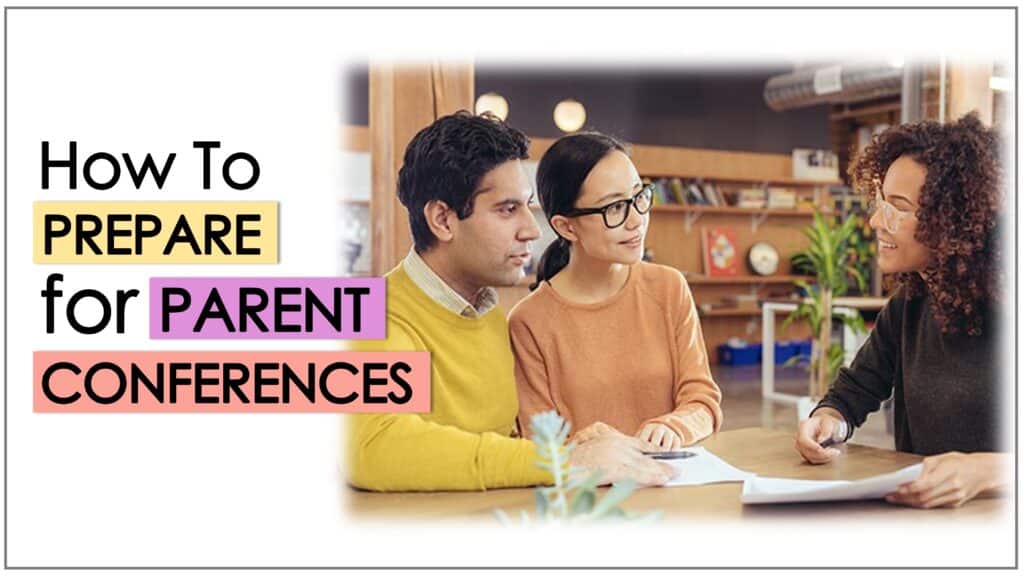
What are the three keys to a successful parent-teacher conference?
Before we dive into the nitty-gritty details, I wanted to share 3 simple keys for preparing for a successful parent-teacher conference. If you remember these 3 things, you’ll be already on your way to a successful meeting.
- Be Prepared
- Start with positives
- Listen and form a collaborative plan
Steps to prepare for parent-teacher conferences
Year after year, these are the steps I take to prepare for parent-teacher conferences. By following each step below, I promise you will feel more prepared and less intimidated by these meetings.
Step 1: Set Up Dates and Times With Flexible Options
- Send home a pre-conference letter for parents to complete so parents can select preferences, times, and dates/ have parents list anything they wish to discuss or any concerns/questions they may have.
- Finalize your schedule. As you create your conference schedule do your best to accommodate the days and times parents/caregivers have requested. Once you finalize your schedule, send home conference confirmation notes with the date and time of the conference. If parents are used to receiving communication from you via your chosen classroom communication app/method (Letters, Dojo, Remind, Email, etc) confirm the conference date and time that way.
- Provide flexible options for virtual or in-person conferences. It can be hard for adults to arrange their schedule especially if they have multiple jobs, or more than one child at the school. Offer families the option of a video call conference or a phone conference.
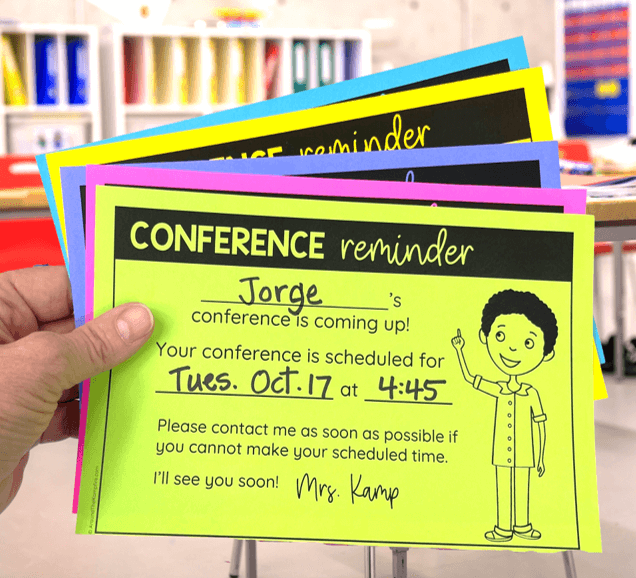
Be sure you schedule enough conference time so you (and the parents) do not feel rushed. It’s okay to block off extra time for students who may be struggling in class or for the parents who listed concerns and questions on a pre-conference parent questionnaire.
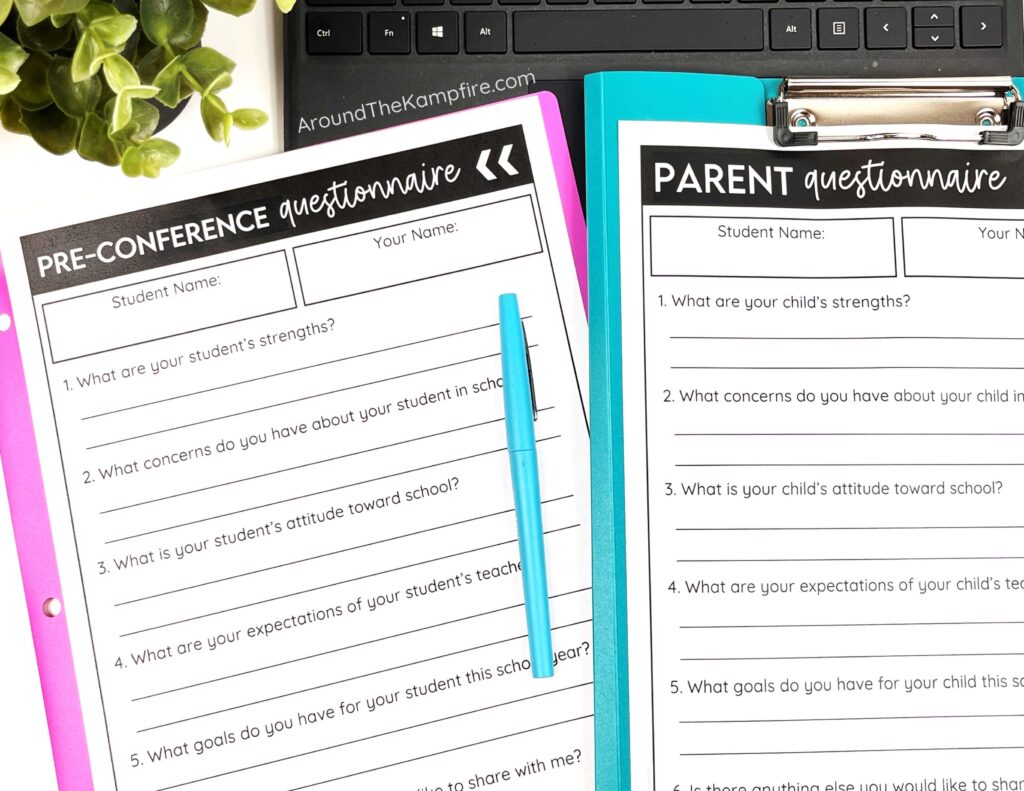
or some students, conference time may be the only time you have contact with their parents or caregivers. In those situations, I use conference time to not only talk about academics and progress, but to fill parents in on what’s going on in our classroom. For example, any class projects coming up or special school events, and even what day library books need to be returned.
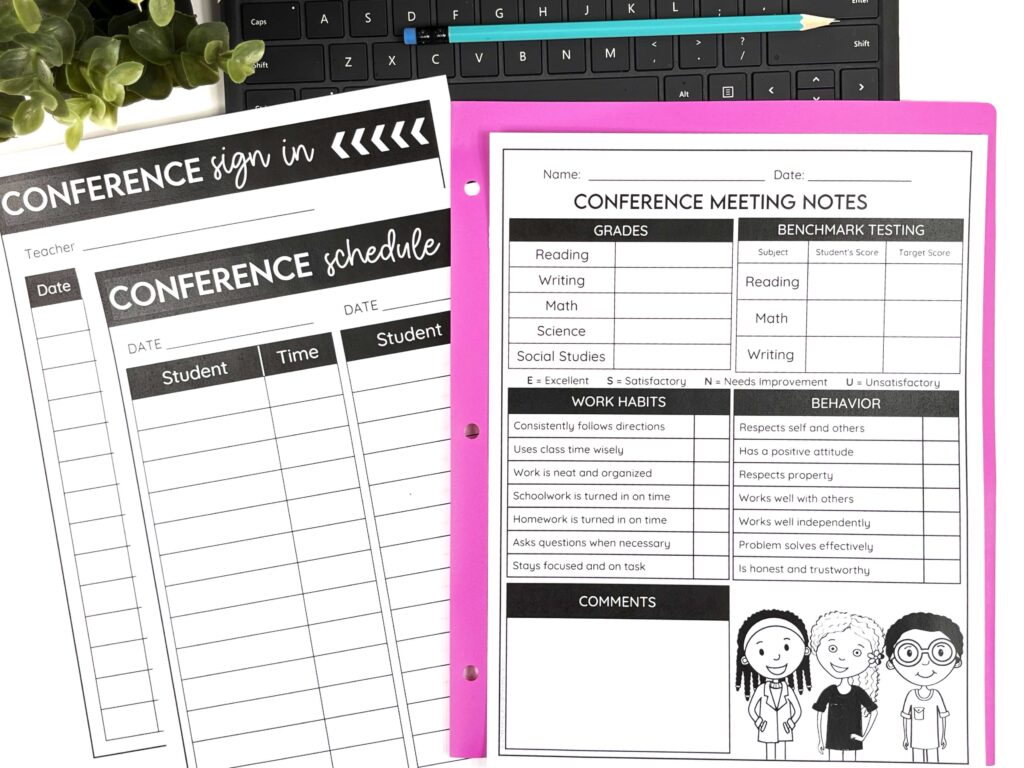
Step 2: Gather Information
Before the conference, gather data and any relevant assessments you have for each student so you can give parents and guardians a clear idea of what the student is learning and how they are doing both academically and behaviorally.
I recommend creating a conference folder for each student that includes the following:
- Recent test scores and growth (Examples: DIBELS/ district benchmark testing/ baseline reading & phonics assessments taken/any screenings with concerns-speech, vision)
- Current classroom grades/percentages
- Work Samples (positive and negative if applicable)
- Find any observations/notes
- Make a list of strengths and areas for improvement
- Consider/prepare for parent concerns that they have voiced or listed on the pre-conference form
- Think about the next steps or what outcome you would like to see
Step 3: Create A Conference Agenda
Next, take all the information you gathered for each student and organize it into an agenda. Having a plan ensures the conference stays on track and that you cover everything you need to discuss.
Example of a Conference Agenda:
- Introductions
- Share something positive
- Discuss learning goals and academic achievements
- Provide examples of strengths and areas for growth
- Address any behavior concerns
- Leave time for questions/comments
- Leave time for questions/comments
- Offer strategies for parents to support their child’s learning at home.
Use this FREE conference planning form to create a discussion agenda for your conference.
Step 4: Set up the Conference Space
Before the conferences, make sure you have a clean and organized space available to meet. Have additional chairs available in case more people attend.
If the conferences are virtual, be sure to check your connection, video, and sound before the parent-teacher meetings.
Tips to Succeed During the Conference
- Welcome the parents and establish a positive tone for the meeting
- Start with a positive
- Follow the agenda, but leave time for parent questions and concerns at the end
- Show empathetic listening
- Refer to actual work samples when speaking
- Confirm that parents have your contact information and any classroom communication apps you use.
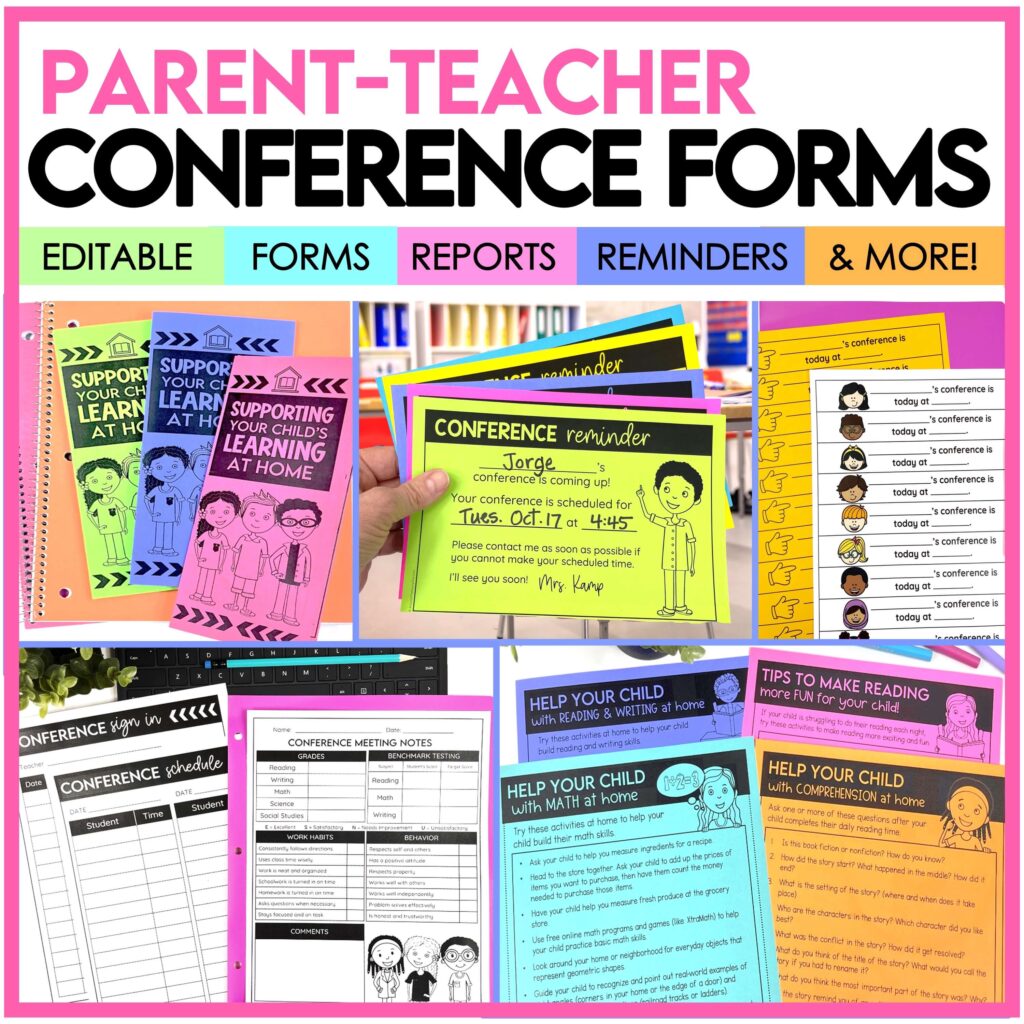
What do I say during the parent-teacher conference? (Sample Script)
Although it can be hard to predict exactly how each parent-teacher conference will go, it’ll be less intimidating if you stay positive and follow your agenda. Below is a sample script of what a parent-teacher meeting may look like! You can also download FREE parent-teacher communication scripts here.
T: “Thank you so much for coming in today! It’s so nice to meet you/see you again! Let’s start with quick introductions so I can make sure I know everyone’s name.”
T: “This meeting should just take about 15 minutes. I did create an agenda so I can make sure I cover all the important points. If you have any questions throughout, please let me know! As you know we are a team in (student’s name) education and we all want what is best for him!”
T: “I want to start off by saying (share a positive). I’m so proud of him! “
T: Discuss recent benchmark testing and grades. Use work samples to support statements. “As you can see from (student’s name) recent math test, he does excellently when it comes to single-step word problems but appears to give up if they have multiple steps. This is also shown on his recent math benchmark test.” (Share what you will be working on in class to help with this).
T: (Share any behavior concerns). “I know we have talked about this before via phone and email, but I did want to pick your brain about it more here. (Student) is still having a pretty hard time keeping his hands to himself. We have tried moving his seat, taking breaks, and social stories, but the incidents keep occurring. Do you see this behavior at home? What works for you there? Do you have any other ideas that may work for him here at school?”
T: “Moving forward… (share plan). If you have extra time at home, (student) would really benefit from working on his math story problems on (preferred online intervention). Here are some directions to help you log on!”
T: “Again, thank you so much for coming in! I am so glad (student) is in my class. Do you have any additional questions or concerns for me?”
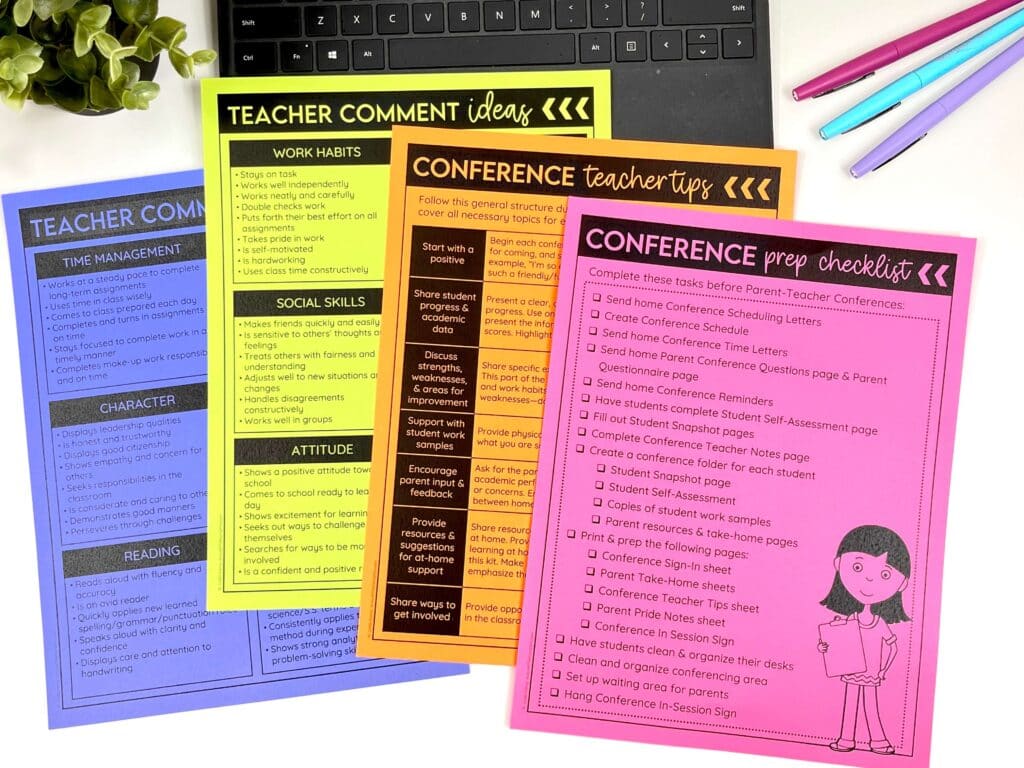
Tip! Consider Holding Student-Led Conferences
Although this may depend on your district’s requirements, I am a big fan of student-led conferences. These types of conferences offer unique benefits by involving the student in the discussion of their progress.
Throughout the year, students maintain portfolios of their work, which can serve as a starting point for the conference discussion. Then in the weeks leading up to the conference, you work with each student to create an agenda.
The student-led conferences are run almost exactly like traditional conferences, except the student takes over the main role. You are still there to support and add important details, but the student will discuss their grades, work samples, and any strengths and weaknesses they see.
Student-led conferences are a great way to teach students responsibility and reflection skills.
Provide Ways Parents Can Help At Home
Parents often want to help their children at home, but they don’t know how. I’ve had many parents ask how they can help their child with homework, what to do if their child is struggling in math or reading, and even how they can support their child in making friends at school.
Give your parents and caregivers this FREE parent brochure with tips for how to support their student’s learning at home.
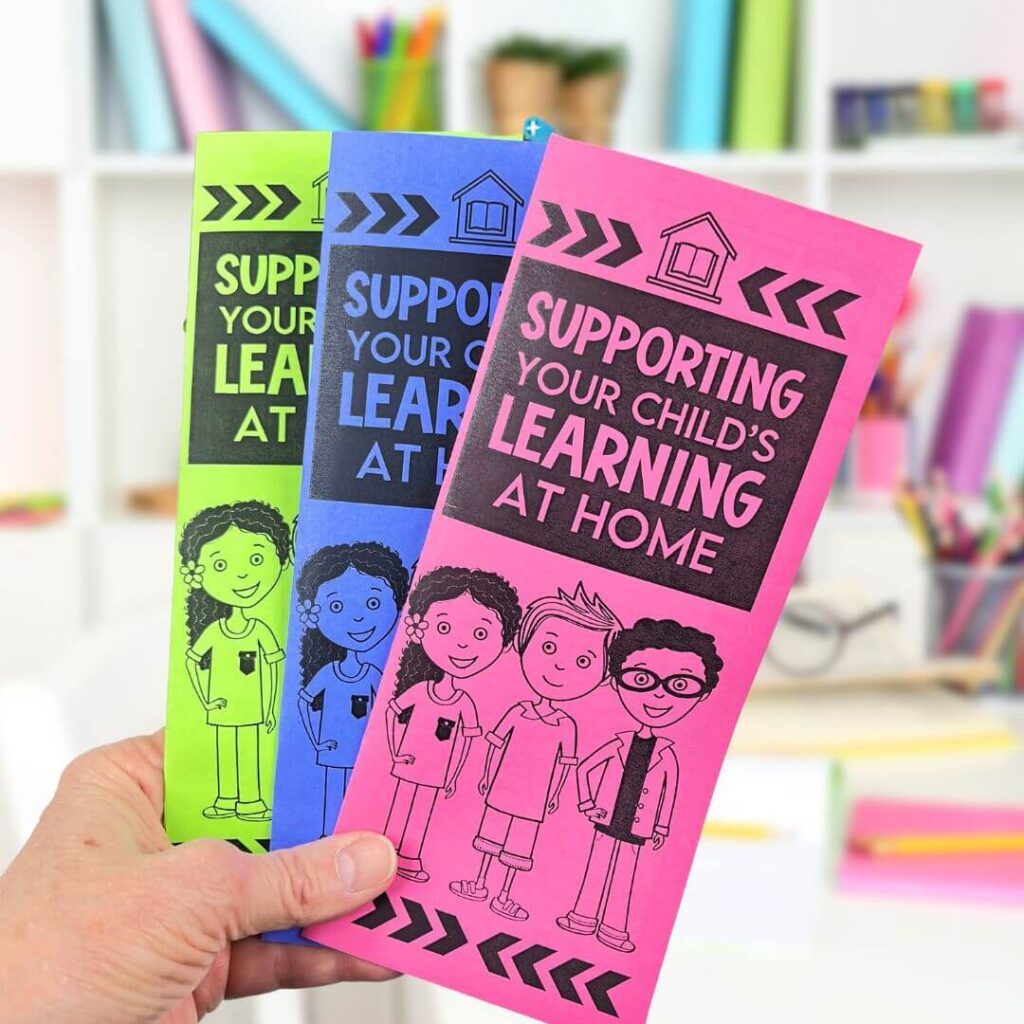
Things to do After the Conference
- Reflect on the conference and document any important points
- Follow up with parents, as needed
- Update student files
- Share relevant information with other teachers as appropriate
Parent-teacher conferences are pivotal moments for fostering a strong partnership between teachers and parents. By preparing well and approaching these meetings with confidence, you can ensure that your students receive the best support possible even when having a difficult conversation.
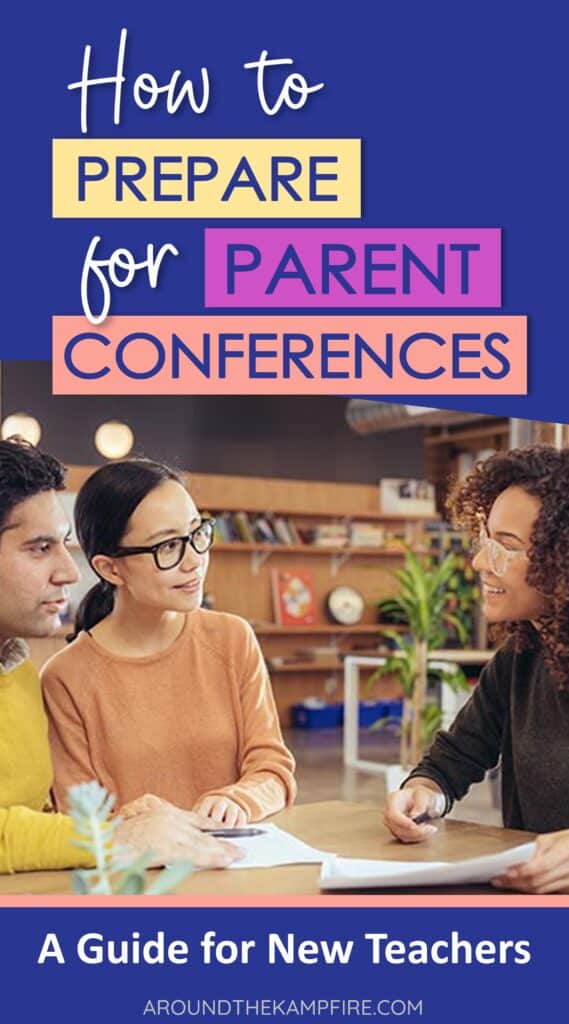
If you found this guide on how to prepare for parent-teacher conferences helpful, share this post with another teacher!
Happy teaching!
Visit these helpful posts for more parent-teacher conference tips!
What to Talk About During Parent-Teacher Conferences
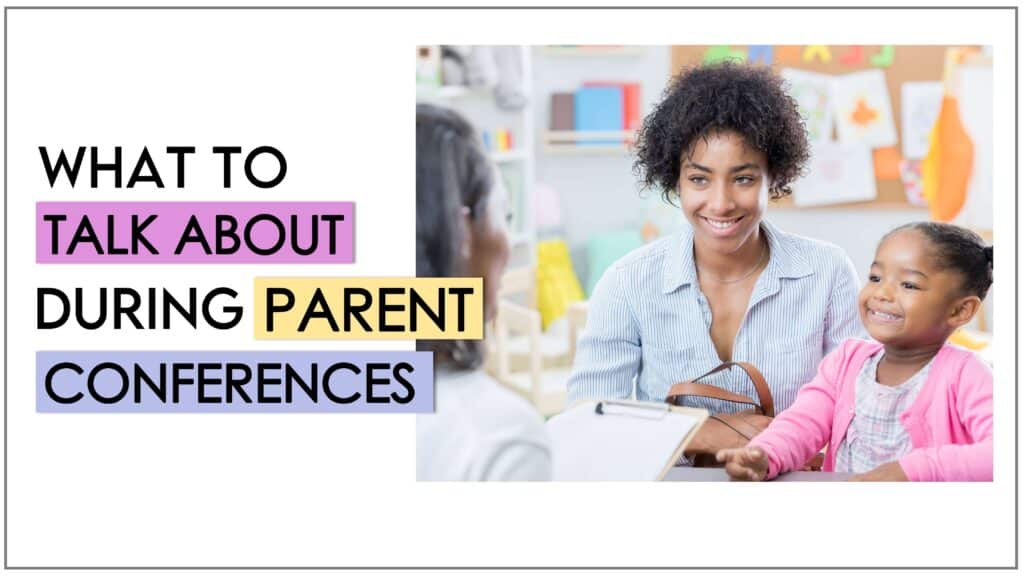
Editable Conference Forms That Fit Every Classroom
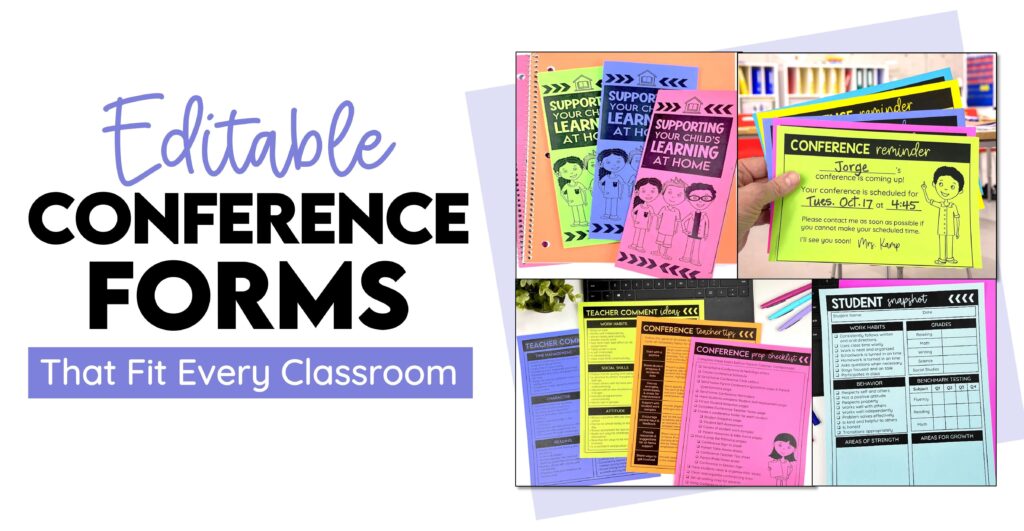
How to Have Difficult Conversations With Parents



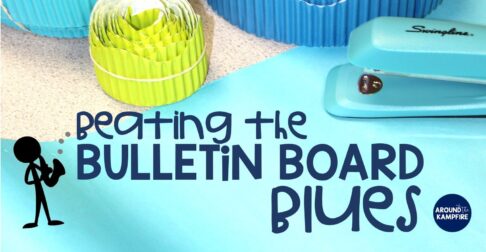

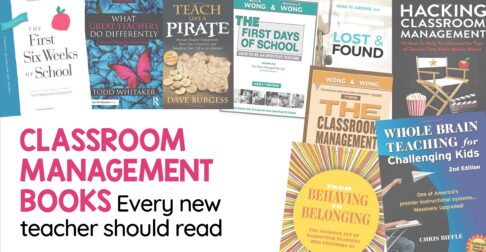

Leave a Comment